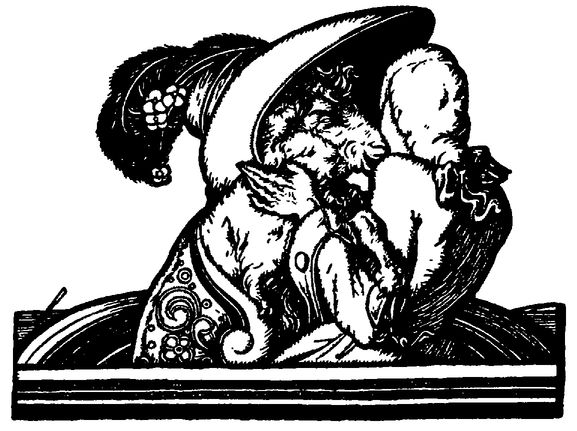XX
What happened to Candide and Martin at sea
The old philosopher, whose name was Martin, set sail with Candide for Bordeaux. They both had seen and suffered a great deal; and even if the ship had been sailing from Surinam to Japan round the Cape of Good Hope, they would have been able to keep themselves amused during the whole voyage with instances of moral and natural evil.
Candide, however, had one advantage over Martin; he still hoped to see Miss Cunégonde once more, whereas the poor philosopher had nothing to hope for; besides, Candide had money and jewels, and though he had lost a hundred red sheep laden with the greatest treasure on earth, and though he still had in his heart the memory of the Dutch skipper’s villainy, yet when he considered what he had still left, and repeated the name of Cunégonde, especially after meal times, he leaned toward Pangloss’s doctrine.
“And,” said he to Martin, “what is your opinion of this system? What is your idea of moral and natural evil?” “Sir,” replied Martin, “our priest accused me of being a Socinian: but the real truth is, I am a Manichæan.”
20 “You’re joking,” said Candide, “there aren’t any more Manichaeans in the world.” “And yet I am one,” said Martin; “but I cannot help it; I cannot think otherwise.” “Surely the devil must be in you,” said Candide. “He is mixed up with so many,” replied Martin, “of the affairs of this world, that it is very probable he may be in me as well as everywhere else; but I must confess, when I cast my eye on this globe, or rather globule, I cannot help thinking that God has abandoned it to some evil being—all of it except El Dorado. I have scarcely seen a city that did not wish the destruction of its neighbouring city, nor a family that did not desire to exterminate some other family. The poor in all parts of the world bear an inveterate hatred against the rich, even while they creep and cringe to them; and the rich treat the poor like sheep, whose wool and flesh they barter for money: a million regimented assassins roam Europe from one end to the other, carrying out murder and robbery with such discipline in order to earn their bread because there is no more honest profession for them. Even in those cities which seem to enjoy the blessings of peace, and where the arts flourish, the inhabitants are devoured by envy, cares and anxieties, which are greater plagues than any experienced in a town when it is under siege. Private griefs are still more dreadful than public calamities. In a word,” concluded the philosopher, “I have seen and suffered so much that I am a Manichaean.”
“And yet there is some good in the world,” replied Candide. “Maybe so,” said Martin; “but it has escaped my knowledge.”
While they were deeply engaged in this dispute they heard the rumble of cannon, which grew louder every moment. Each took out his spy-glass, and they saw two ships fighting at the distance of about three miles away. The wind brought them both so near the French ship that they had the pleasure of seeing the fight with great ease. After several smart broadsides, the one gave the other a shot so well aimed that it sank her outright. Then Candide and Martin could easily see a hundred men on the deck of the vessel which was sinking, who, with hands raised to heaven, sent forth piercing cries and were in a moment swallowed up by the waves.
“Well,” said Martin, “you now see how mankind treat each other.” “It is certain,” said Candide, “that there is something diabolical in this affair.” As he was speaking, he noticed something of a shining red hue, floating close to the sunken vessel. They sent a boat to investigate what it might be, and it proved to be one of his sheep. Candide felt more joy at the recovery of this one animal than he did grief when he lost the other hundred, all laden with the large diamonds of El Dorado.
The French captain quickly realized that the victorious ship belonged to the crown of Spain; that the other was a Dutch pirate and the very same captain who had robbed Candide. The immense riches which this villain had stolen were buried with him in the sea, and only this one sheep was saved. “You see,” said Candide to Martin, “that vice is sometimes punished; this villain the Dutch skipper has met with the fate he deserves.” “Very true,” said Martin “but why should the passengers perish too? God has punished the knave, and the devil has drowned the rest.”
The French and Spanish ships continued on their journey, and Candide and Martin continued their conversation. They disputed for fifteen days in a row and at the end of that time they were just as far advanced as the first moment they began. However, they had the satisfaction of talking, of communicating their ideas, and of comforting each other. Candide embraced his sheep: “Since I have found you again,” said he, “I may possibly find my Cunégonde once more.”

